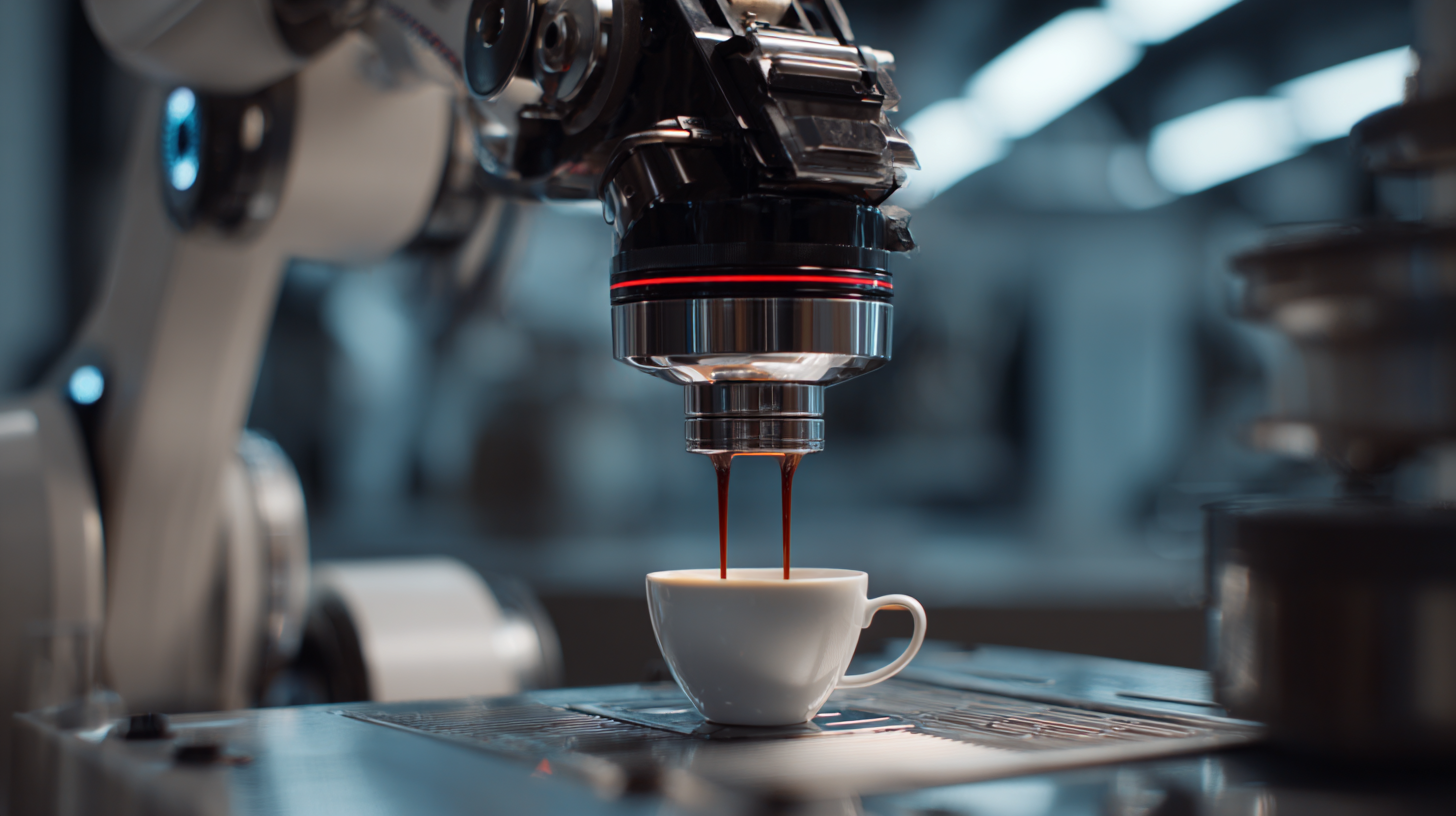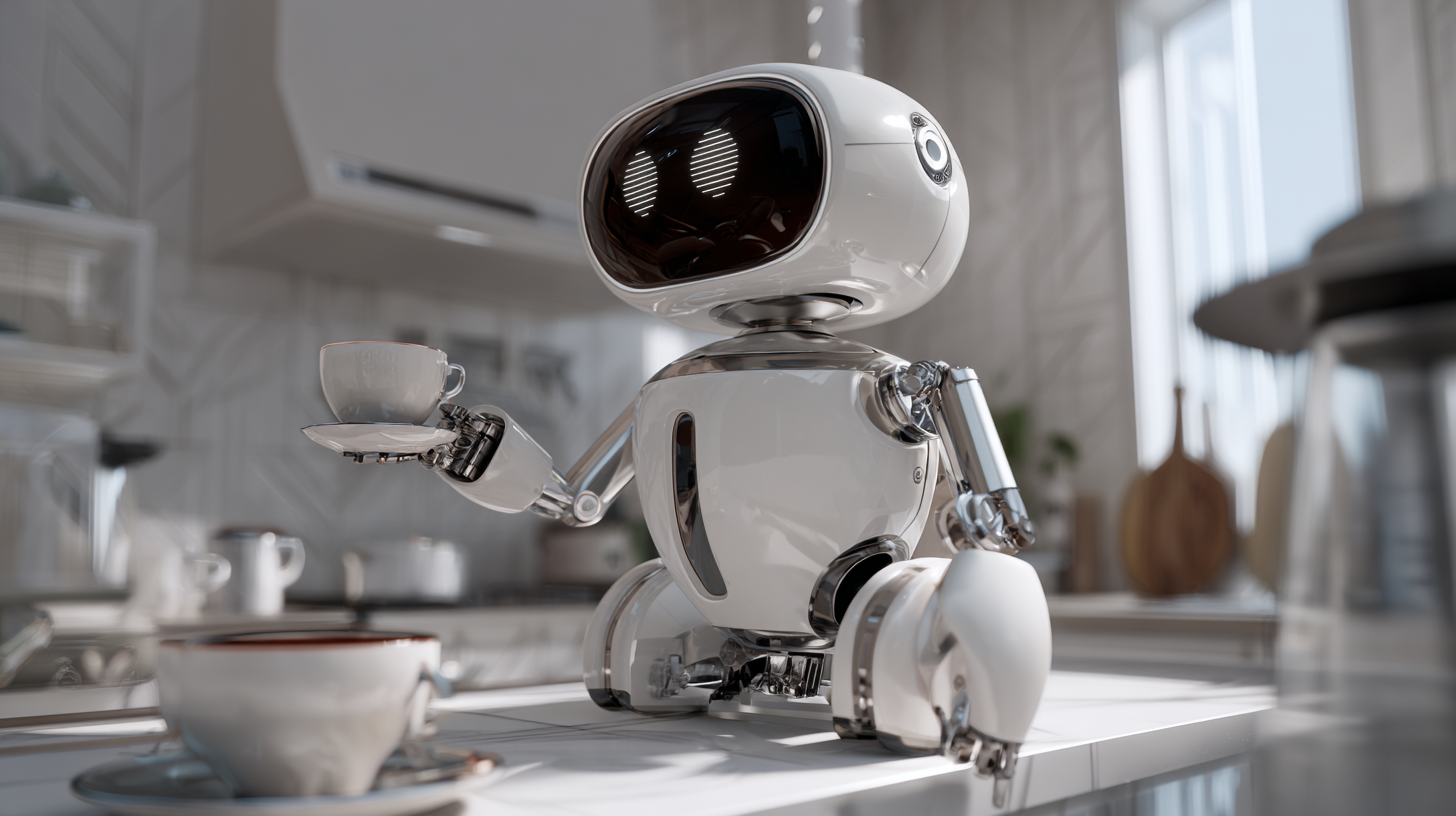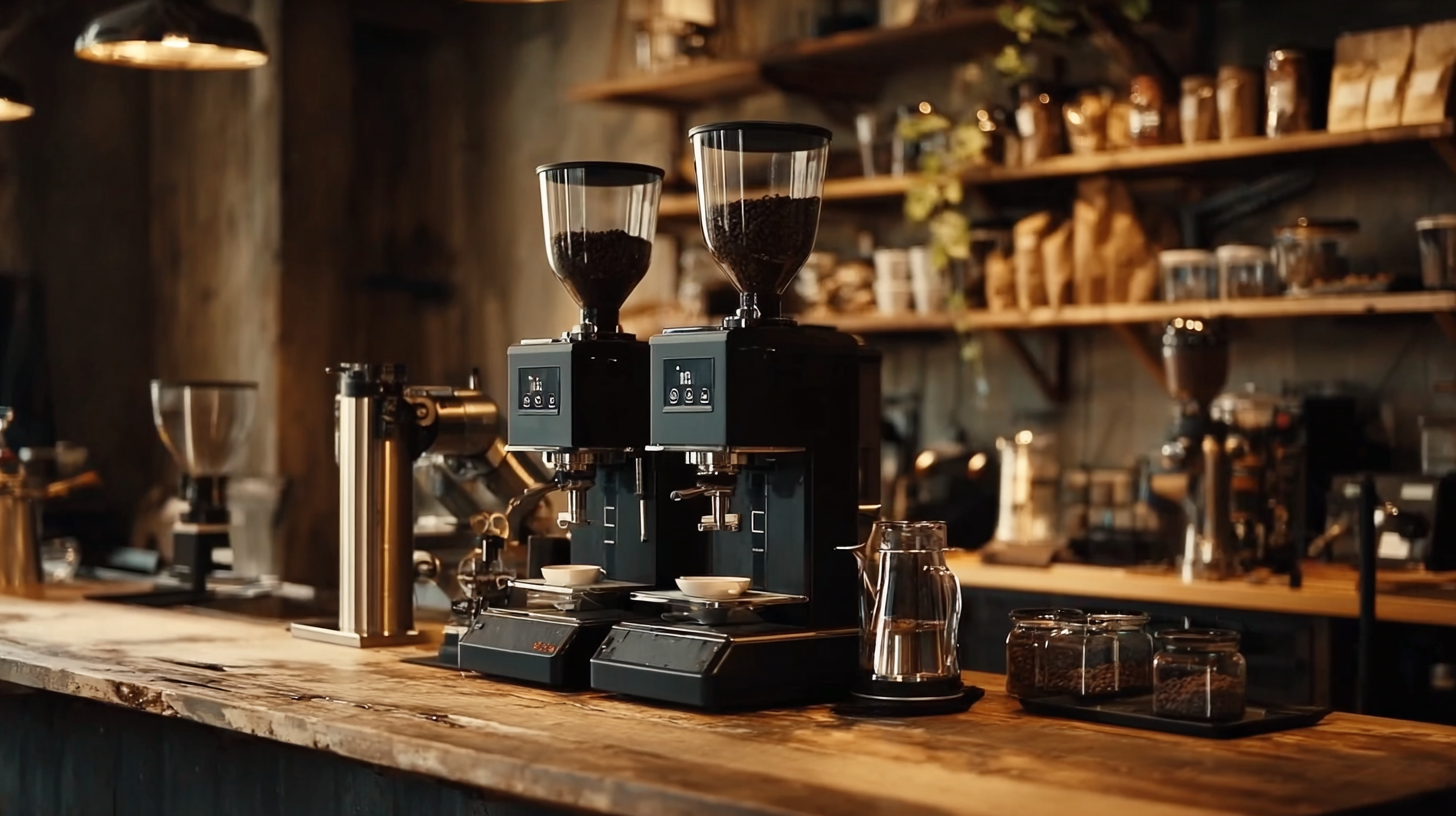- Ambawadi, Ahmedabad, Gujarat
- View Mobile Number
Exploring the Future of Coffee Automation with the Rise of Coffee Robots
As the world of coffee continues to evolve, the rise of Coffee Robots is reshaping the landscape of the beverage industry. Automation is not just enhancing efficiency; it is also redefining the art of coffee preparation. Experts like Dr. Emily Brewster, a leading authority in coffee automation, have noted, "The integration of robotics in coffee-making is revolutionizing how we experience our daily brew, allowing for consistency and innovative flavors." This technological advancement is propelling the coffee industry forward, captivating both baristas and coffee enthusiasts alike.
In this exploration of the future of coffee automation, we will delve into how Coffee Robots are changing traditional brewing methods and impacting consumer preferences. These robotic systems are designed to mimic the intricate techniques of skilled baristas, ensuring that every cup of coffee meets high standards of quality and taste. Moreover, the infusion of artificial intelligence into these machines is paving the way for personalized coffee experiences, catering to individual tastes and preferences.
Join us as we navigate the exciting developments in the Coffee Robot sector, highlight the benefits of automation in coffee production, and consider what these innovations mean for the future of coffee consumption. The journey is about more than just efficiency; it’s about enhancing the ritual of coffee drinking in a modern world, where technology and tradition can coexist harmoniously.

The Evolution of Coffee Brewing: From Baristas to Robots
The evolution of coffee brewing has taken a remarkable turn as automation and robotics increasingly transform the coffee industry. Once, the art of brewing coffee depended heavily on skilled baristas who perfected their craft through years of experience. Today, however, advancements in technology have ushered in a new era where coffee robots are emerging as efficient alternatives, capable of preparing complex beverages with precision and speed. This shift is evident in bustling cities like Shanghai, where innovative robotic coffee machines are not only brewing coffee but also enhancing customer experiences at various venues.
At recent technology expos, such as the Canton Fair, the spotlight has been on AI-powered coffee solutions that blend convenience with quality. These smart kiosks utilize cutting-edge algorithms to create specialty drinks tailored to individual preferences, demonstrating a significant leap forward in vending technology. As consumer expectations evolve, the integration of robots in coffee service highlights a growing trend towards automation, replacing traditional methods with intelligent systems that promise to elevate the coffee experience while also optimizing operational efficiency for retailers.
Technological Advancements Driving Coffee Automation
The coffee industry is undergoing a significant transformation driven by technological advancements that streamline production processes and enhance the coffee experience for consumers. Automation has emerged as a key player, with coffee robots designed to take over repetitive tasks in coffee brewing and preparation. These innovations promise to reduce labor costs and improve efficiency, allowing baristas and café owners to focus on customer service and quality.
Recent developments in artificial intelligence and machine learning have enabled coffee robots to adapt and learn from user preferences, personalizing the brewing process for each individual. With capabilities such as precise temperature control and customizable recipe options, these robots not only ensure consistency in flavor but also heighten the overall coffee experience. As more cafés adopt these technologies, the fusion of tradition and innovation will redefine how coffee is prepared and enjoyed, making automation a vital component in the future of the coffee industry.

Benefits of Coffee Robots in Commercial and Home Settings
The integration of coffee robots into both commercial and home environments is transforming the way we enjoy this beloved beverage. In commercial settings, recent studies forecast that the global coffee machine market will reach $5.73 billion by 2026, driven largely by advancements in automation technology. Coffee robots can streamline operations in busy cafes, ensuring consistent quality and reducing wait times for customers. For instance, coffee robots can process orders with precision, delivering the perfect espresso shot every time, which not only enhances customer satisfaction but also increases the speed of service dramatically.
In home settings, the appeal of coffee robots lies in their convenience and ease of use. A survey conducted by the Specialty Coffee Association reports that 70% of coffee drinkers are interested in using automation to enhance their brewing experience. These machines can offer personalized brewing options, allowing users to customize their coffee with an array of flavors and strengths at the touch of a button. Additionally, the trend towards smart home integration means that coffee robots can be controlled via smartphones, enabling users to wake up to freshly brewed coffee. As these technologies evolve, we will likely see further improvements in energy efficiency and sustainability, making coffee robots an attractive option for conscious consumers.
Exploring the Future of Coffee Automation with the Rise of Coffee Robots - Benefits of Coffee Robots in Commercial and Home Settings
| Feature | Commercial Benefits | Home Benefits |
|---|---|---|
| Consistency | Ensures uniform taste across all beverages served | Delivers the same quality coffee every time |
| Time Efficiency | Reduces staff workload during peak hours | Quick preparation of coffee at home |
| Customization | Offers customers personalized drink options | Allows customization to individual preferences |
| Cost Efficiency | Reduces labor costs over time | Saves money by making coffee at home |
| Skill Requirement | Minimizes the need for barista training | Easy to operate for all family members |
Challenges and Limitations of Coffee Robotics Implementation
The integration of robotics in the coffee industry promises efficiency and innovation, but several challenges hinder its widespread implementation. First, the technological complexity involved in accurately replicating the nuanced processes of coffee brewing poses a significant barrier. Coffee preparation is not merely about measurements and timing; it also involves an understanding of flavor profiles, water quality, and grind size, all of which are critical to achieving the perfect cup. Developing robots that can adjust to these variables in real time requires sophisticated programming and sensory technologies that are still in their infancy.
Moreover, the financial investment required for coffee automation can be daunting for many small businesses. The initial costs of purchasing and maintaining robotic systems may outweigh the anticipated benefits, particularly in regions where labor is more affordable. Additionally, there is a cultural resistance to automation in artisan industries, especially among traditional coffee purveyors who emphasize the craftsmanship involved in brewing. These limitations not only affect the feasibility of implementing coffee robotics but also raise questions about the future role of human expertise in the coffee-making process.
Future Trends: How AI Will Shape Coffee Experiences
As we delve into the future of coffee, the integration of artificial intelligence (AI) is poised to revolutionize the coffee experience for consumers and businesses alike. AI technologies enable coffee robots to analyze customer preferences in real time, allowing for the creation of personalized beverages that cater to individual tastes. By leveraging data on previous orders, flavor profiles, and even demographic information, these systems can suggest drinks that enhance the customer experience, making visits to coffee shops not just about caffeine consumption but about a tailored journey into flavor.
Moreover, the automation of coffee brewing processes through the use of AI is set to maintain consistency and quality on an unprecedented scale. Smart coffee machines can monitor variables such as temperature, grind size, and extraction time to ensure that each cup meets exact standards. This level of precision not only delights consumers but also saves time for baristas, allowing them to focus on customer interaction rather than on repetitive tasks. As these technologies advance, we can expect coffee shops to blend the art of coffee-making with the efficiency of automation, creating an engaging environment that caters to both human and technological interaction.

